
Vladimir Benes
EMBL Heidelberg
Germany
EMBO Practical Course
EMBL is committed to sharing research advances and sustaining scientific interaction throughout the coronavirus pandemic. We are delighted to announce that the course is going virtual and invite you to join us online.
Regulation of translation is a key layer in the control of gene expression, playing a critical role in many biological and pathophysiological settings. In the last decade, methodological advances have provided comprehensive insights into cellular transcriptomes and proteomes, however, the systems-wide analysis of translation has remained an unsolved experimental challenge. The recent advent of ‘ribosome-profiling’ has provided the methodological basis for comprehensive transcriptome-wide analyses of translation at sub-codon resolution by the precise and high-throughput determination of ribosomal positions on mRNA. Its application in a variety of organisms yielded novel insights into protein synthesis and its dynamic regulation, significantly advancing our understanding of the post-transcriptional regulation of gene expression. This practical course will combine theoretical sessions with hands-on experimentation and computation emphasising the key steps of the protocol and computational quality control.

EMBL Heidelberg
Germany

Johns Hopkins School of
Medicine
USA
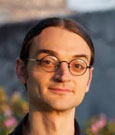
University of California,
Berkeley
USA
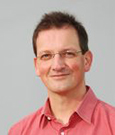
University of Bern
Switzerland

University of Regensburg
Germany
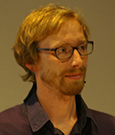
Ghent University
Belgium

Australian National University
Australia

Max Planck Institute for
Biophysical Chemistry
Germany

University of Cambridge
UK
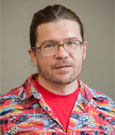
University College Cork
Ireland

University of Bern
Switzerland

University College Cork
Ireland

University College Cork
Ireland

University of Bern
Switzerland

University College Cork
Ireland

University of Bern
Switzerland
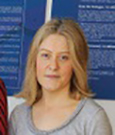
University College Cork
Ireland
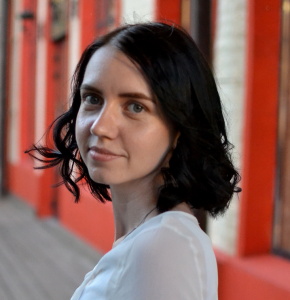
University of Bern
Switzerland

University of Bern
Switzerland
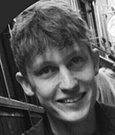
University College Cork
Ireland

University College Cork
Ireland

University College Cork
Ireland

University of Bern
Switzerland

University of Regensburg
Germany

Training Lab Technician
EMBL Heidelberg
Germany

Course and Conference Officer
EMBL Heidelberg
Germany

Training Lab Manager
EMBL Heidelberg
Germany
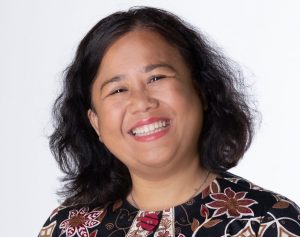
Course and Conference Officer
EMBL Heidelberg
Germany
Got something to say? Tweet it with #EMBORiboProf
All times in the programme below are shown as the time in Europe (Berlin, Amsterdam Paris).
To find out the equivalent time zone in your location, enter Berlin, the programme date and time along with your city into the Time Zone Converter.
| Time (Europe/Berlin) | Speaker |
|---|---|
| 10:30 – 12:00 | Onboarding and technical troubleshooting |
| Time (Europe/Berlin) | Speaker |
|---|---|
| 12:45 – 13:00 | Check-in and overview of the day |
| 13:00 – 13:15 | Welcome, housenotes and course overview |
| 13:15 – 14:30 | Icebreaker activity (flashtalks) |
| 14:30 – 14:45 | Break |
| 14:45 – 15:30 | Interactive practical session Live Q&A based on pre-recorded video practical Sebastian Leidel – University of Bern, Switzerland |
| 15:30 – 15:45 | Break |
| 15:45 – 16:45 | Student presentations |
| 16:45 – 17:00 | Break |
| 17:00 – 17:30 | Social programme: Online speed networking |
| Time Europe/Berlin) | Speaker |
|---|---|
| 12:45 – 13:00 | Check-in and overview of the day |
| 13:00 – 13:30 | Live Q&A session to pre-recorded talk State of the art and future developments in ribosome profiling Nicholas Ingolia – University of California, Berkeley, USA |
| 13:30 – 14:00 | Live Q&A session to pre-recorded talk Biophysical approaches for measuring translational dynamics Marina Rodnina – Max Planck Institute for Biophysical Chemistry, Germany |
| 14:00 – 14:15 | Break |
| 14:15 – 15:00 | Interactive practical session Live Q&A based on pre-recorded video practical Jan Medenbach – University of Regensburg, Germany |
| 15:00 – 15:30 | Break |
| 15:30 – 16:00 | Live Q&A session to pre-recorded talk Probing ribosomal stalling Rachel Green – Johns Hopkins School of Medicine, USA |
| 16:00 – 17:00 | Student presentations |
| 17:00 – 17:45 | Social programme: Online Pictionary |
| Time (Europe/Berlin) | Speaker |
|---|---|
| 12:45 – 13:00 | Check-in and overview of the day |
| 13:00 – 13:30 | Live Q&A session to pre-recorded talk Current applications: Translational regulation in proliferation and tumorigenesis Anne Willis – University of Cambridge, UK |
| 13:30 – 14:00 | Live Q&A session to pre-recorded talk TCP-Seq and applications Thomas Preiss – Australian National University, Australia |
| 14:00 – 14:15 | Break |
| 14:15 – 16:00 | Interactive breakout session with experts |
| 16:00 – 16:15 | Break |
| 16:15 – 17:15 | Student presentations |
| Time (Europe/Berlin) | Speaker |
|---|---|
| 12:45 – 13:00 | Check-in and overview of the day |
| 13:00 – 13:30 | Live Q&A session to pre-recorded talk RIBO-seq applications in proteogenomics Gerben Menschaert – Ghent University, Belgium |
| 13:30 – 13:45 | Break |
| 13:45 – 15:15 | Interactive practical session with trainers Facilitator: Pavel Baranov – University College Cork, Ireland Trainers: Alla Fedorova – University College Cork, Ireland Darren Fenton – University College Cork, Ireland Stephen Kiniry – University College Cork, Ireland Audrey Michel – University College Cork, Ireland Jack Tierney – University College Cork, Ireland Oza Zaheed Maheswaran – University College Cork, Ireland |
| 15:15 – 15:30 | Break |
| 15:30 – 17:00 | Interactive practical session with trainers (continued) Facilitator: Pavel Baranov – University College Cork, Ireland Trainers: Alla Fedorova – University College Cork, Ireland Darren Fenton – University College Cork, Ireland Stephen Kiniry – University College Cork, Ireland Audrey Michel – University College Cork, Ireland Jack Tierney – University College Cork, Ireland Oza Zaheed Maheswaran – University College Cork, Ireland |
| Time (Europe/Berlin) | Speaker |
|---|---|
| 12:45 – 13:00 | Check-in and overview of the day |
| 13:00 – 13:45 | Live lecture with Q&A Introduction to sequencing technology Vladimir Benes – EMBL Heidelberg, Germany |
| 13:45 – 14:30 | Discussion round Future technological applications and new strategies for data analysis Moderator: Vladimir Benes – EMBL Heidelberg, Germany Panellists: Pavel Baranov – University College Cork, Ireland Sebastian Leidel – University of Bern, Switzerland Jan Medenbach – University of Regensburg, Germany Elisabeth Zielonka – EMBL Heidelberg, Germany |
| 14:30 – 15:00 | Social networking: Virtual pub quiz |
| 15:00 – 16:00 | Student presentations |
| Time (Europe/Berlin) | Speaker |
|---|---|
| 12:45 – 13:00 | Check-in and overview of the day |
| 13:00 – 14:30 | Student assignment presentations |
| 14:30 – 14:45 | Break |
| 14:45 – 16:15 | Student assignment presentations (continued) |
| 16:15 – 16:30 | Break |
| 16:30 – 17:15 | Interactive session Course wrap-up: – General questions – Take away message for participants – Short feedback round |
| 17:15 – 17:30 | Winners announcement and farewell |
| 17:30 | End of course |
Registration Fee Waivers
All academic and student registrants are invited to apply for a registration fee waiver, provided by the EMBL Advanced Training Centre Corporate Partnership Programme and EMBO. The registration fee waiver covers the registration sum that you have paid to attend the meeting. Conference participants are not required to pre-pay the registration fee to be selected for a fee waiver for a virtual meeting. If you have already paid the registration fee and are awarded a fee waiver, it will be reimbursed after the meeting. Course participants are required to pay the course fee in advance, which will then be reimbursed after the recipient has attended the course.
For participants and speakers with childcare responsibilities there is the possibility to apply for a grant, provided by the EMBL Advanced Training Centre Corporate Partnership Programme and EMBO, to offset childcare costs incurred when participating at a virtual event. Eligible costs include fees for a babysitter or childcare facility or travel costs for a care giver. Please note that priority will be given to early stage researchers. Costs will be reimbursed after the meeting only once a reimbursement form and original receipts have been received. Attendance at the event is required in order to be eligible to receive the reimbursement. In order to apply for this grant, you must be registered by the abstract submission deadline.
Applies to selected courses only. Availability will be indicated during the abstract or motivation letter submission process.
This grant covers costs related to your attendance to the course (registration, travel and accommodation costs). The grant is restricted to PhD students and postdocs who conduct basic biomedical research.
Whether you are eligible to apply for a travel grant, depends on when you received your university entrance qualification (e.g. Abitur, A-Levels, High School Diploma, Final State Examination):
– for PhD and MD students, as well as graduates, the university entrance qualification must not have been obtained more than 11 years ago at the time of the envisaged course
– for postdocs, the university entrance qualification must not have been obtained more than 13 years ago at the time of the envisaged course
Applications for financial assistance can be submitted via the submission portal* (for the submission of abstracts for conferences or the submission of motivation letters for courses) by completing the Financial Assistance Application Section (underneath the section for entering abstract/motivation letter information). The link to the portal can be found in the registration confirmation email that you will receive after registering for the conference or course.
For conferences, if you are not submitting an abstract, you can still apply for financial assistance in the submission portal by following the instructions here. Note that priority will be given to those submitting an abstract to present at the conference. In your application you will be asked to answer questions regarding your motivation for applying, and, for registration fee waivers, the reasons why your lab cannot fund your attendance and how your attendance will make a difference to your career. Application for financial support will not affect the outcome of your registration application.
*For some events, applications for Childcare Grants will still be done by email. Information about the grant will be sent out shortly after the abstract/motivation letter deadline. Please contact the event Conference Officer if you have any questions.
The scientific organisers will select the recipients of registration fee waivers during the abstract selection process for conferences and the participant selection process for courses. Results will be announced approximately 3 – 4 weeks before the event start date. Selection results do not impact your admission to the meeting. Registration fee waiver selection is based on your current work or study location, your motivation for applying, the reasons for needing financial support and the impact this event will have on your career. Childcare grants are allocated based on career stage, with priority given to early stage researchers.
A list of external funding opportunities can be found here, and information on attending a conference as an event reporter here.
For further information about financial assistance please refer to the FAQ page.
The EMBL eCampus learning platform will be used to collaborate, communicate and network with all of the course participants. All participants will receive information on how to join shortly before the course. We recommend using Chrome, Safari or Mozilla Firefox browsers for eCampus.
Zoom will be used for the live talks and Q&A sessions. More information will be provided closer to the start of the course.
While using the software during the course, please make sure you have nothing else using your bandwidth. We recommend using a wired connection.
Please do:
Please don’t:
Additional information can be found in our Code of Conduct.
It is important to stay healthy and move around, especially when you are attending an event virtually. We have put together a few coffee break stretches and yoga videos in the events Slack workspace for you to enjoy during the event.
Questions during and after the talks can be asked in live streaming platform. The chair moderates the questions and shares them with the speaker. If time runs out or you think of a question later, you can use Slack to ask your questions in the dedicated session channels or via direct message.
The programme is planned based on Central European Time (CET), unless otherwise stated. As many virtual participants are attending from around the world, we do our best to accomodate as many timezones as possible when creating the programme. Please take your time zone into consideration when planning your attendance.
Event Supporter:
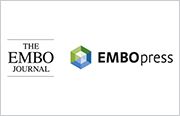
Sponsorship Opportunities
We offer a variety of event sponsoring possibilities, with the flexibility to select a set sponsorship package or combine individual sponsorship options to suit your event budget. Discounts are available for companies sponsoring multiple events at EMBL Heidelberg. View other conferences, or contact sponsorship@embl.de for further information.
If you are interested in becoming a media partner of this event, please visit our media partnerships webpage.
